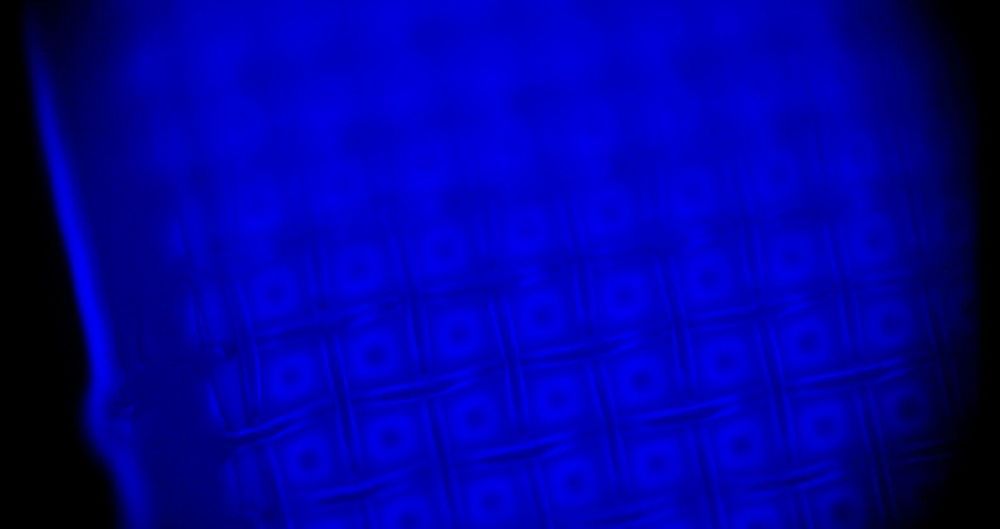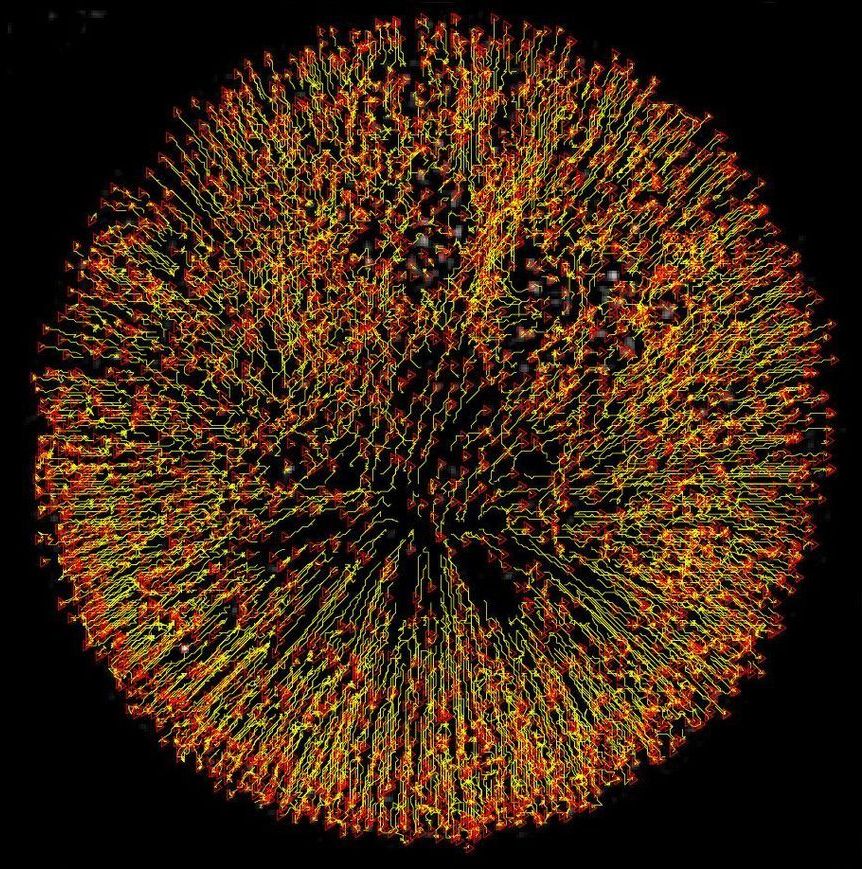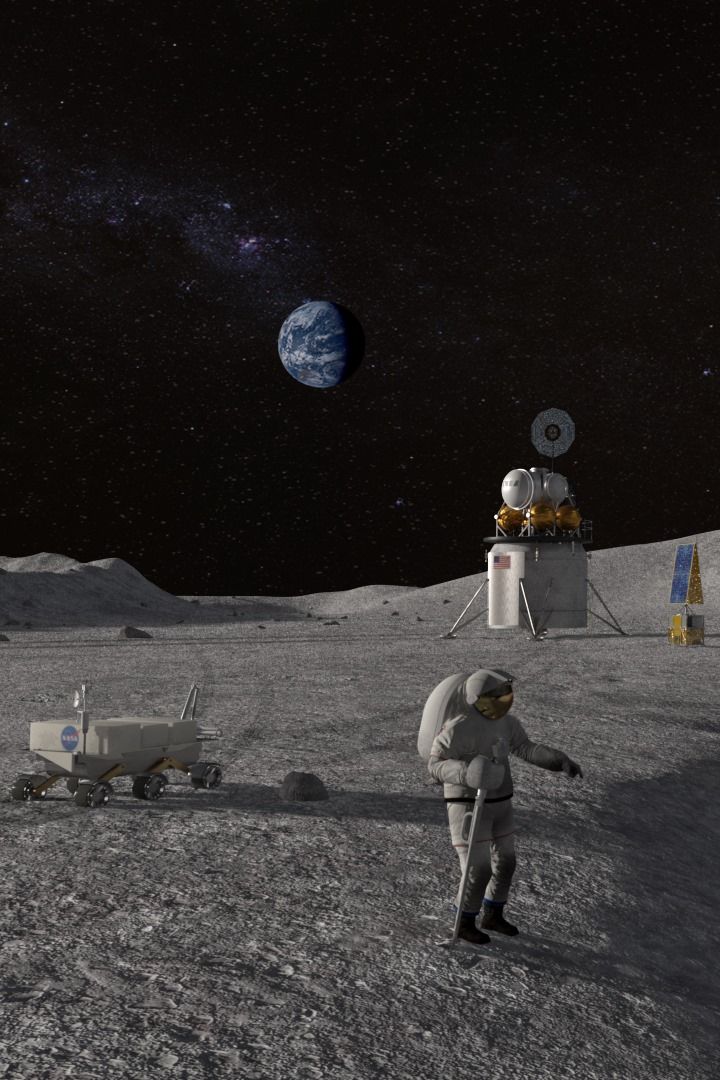Some answers to your questions, please keep asking, and thanks for your patience as we #buildthespaceforce. #USSF #SpaceForce
Get the latest international news and world events from around the world.

Shining light into the dark: New discovery makes microscopic imaging possible in dark conditions
Curtin University researchers have discovered a new way to more accurately analyze microscopic samples by essentially making them glow in the dark through the use of chemically luminescent molecules.
Lead researcher Dr. Yan Vogel from the School of Molecular and Life Sciences said current methods of microscopic imaging rely on fluorescence, which means a light needs to be shining on the sample while it is being analyzed. While this method is effective, it also has some drawbacks.
“Most biological cells and chemicals generally do not like exposure to light because it can destroy things—similar to how certain plastics lose their colors after prolonged sun exposure, or how our skin can get sunburned,” Dr. Vogel said. “The light that shines on the samples is often too damaging for the living specimens and can be too invasive, interfering with the biochemical process and potentially limiting the study and scientists’ understanding of the living organisms.”

Driving immunometabolism to control lung infection
When drugs to kill microbes are ineffective, host-directed therapy uses the body’s own immune system to deal with the infection. This approach is being tested in patients with COVID-19, and now a team of researchers at Trinity College Dublin has published a study showing how it might also work in the fight against tuberculosis (TB). The findings are published in the journal Frontiers in Immunology.
Although the bacteria that causes TB (called Mtb) has scourged humankind for millennia, we do not fully understand the complexities and interplay of the human immune response to this ancient bug. Worryingly, there are increasing numbers of people with antibiotic resistant TB, which is hard to treat and is becoming a global threat to public health.
Scientists at the Trinity Translational Medicine Institute (TTMI) at St. James’s Hospital are dedicated to understanding the intricacies of the human immune response to Mtb with the aim of finding ways to target and promote the immune response to overcome the infection. Scientists already know that the human immune response can both under or over respond to the bacteria resulting in a difficulty to treat the disease. This complex immune response is analogous to driving with both the accelerator and the brakes fully engaged at the same time.

New tool helps interpret future searches for life on exoplanets
Is there life on a distant planet? One way astronomers are trying to find out is by analyzing the light that is scattered off a planet’s atmosphere. Some of that light, which originates from the stars it orbits, has interacted with its atmosphere, and provides important clues to the gases it contains. If gases like oxygen, methane or ozone are detected, that could indicate the presence of living organisms. Such gases are known as biosignatures. A team of scientists from EPFL and Tor Vergata University of Rome has developed a statistical model that can help astronomers interpret the results of the search for these “signs of life.” Their research has just been published in Proceedings of the National Academy of Sciences (PNAS).
Since the first exoplanet—a planet that orbits a star other than the sun—was discovered 25 years ago, over 4,300 more have been identified. And the list is still growing: a new one is discovered every two or three days. Around 200 of the exoplanets found so far are telluric, meaning they consist mainly of rocks, like the Earth. While that’s not the only requirement for a planet to be able to host life—it also needs to have water and be a certain distance from its sun—it is one criterion that astronomers are using to focus their search.
In the coming years, the use of gas spectroscopy to detect biosignatures in planets’ atmospheres will become an increasingly important element of astronomy. Many research programs are already under way in this area, such as for the CHEOPS exoplanet-hunting satellite, which went into orbit in December 2019, and the James-Webb optical telescope, scheduled to be launched in October 2021.

Coffee stains inspire optimal printing technique for electronics
Have you ever spilled your coffee on your desk? You may then have observed one of the most puzzling phenomena of fluid mechanics—the coffee ring effect. This effect has hindered the industrial deployment of functional inks with graphene, 2-D materials, and nanoparticles because it makes printed electronic devices behave irregularly.
Now, after studying this process for years, a team of researchers have created a new family of inks that overcomes this problem, enabling the fabrication of new electronics such as sensors, light detectors, batteries and solar cells.
Coffee rings form because the liquid evaporates quicker at the edges, causing an accumulation of solid particles that results in the characteristic dark ring. Inks behave like coffee—particles in the ink accumulate around the edges creating irregular shapes and uneven surfaces, especially when printing on hard surfaces like silicon wafers or plastics.

Mix-StAGE: A model that can generate gestures to accompany a virtual agent’s speech
Virtual assistants and robots are becoming increasingly sophisticated, interactive and human-like. To fully replicate human communication, however, artificial intelligence (AI) agents should not only be able to determine what users are saying and produce adequate responses, they should also mimic humans in the way they speak.
Researchers at Carnegie Mellon University (CMU) have recently carried out a study aimed at improving how virtual assistants and robots communicate with humans by generating natural gestures to accompany their speech. Their paper, pre-published on arXiv and set to be presented at the European Conference on Computer Vision (ECCV) 2020, introduces Mix-StAGE, a new model that can produce different styles of co-speech gestures that best match the voice of a speaker and what he/she is saying.
“Imagine a situation where you are communicating with a friend in a virtual space through a virtual reality headset,” Chaitanya Ahuja, one of the researchers who carried out the study, told TechXplore. “The headset is only able to hear your voice, but not able to see your hand gestures. The goal of our model is to predict the hand gestures accompanying the speech.”

Black silicon UV responses exceed 130% efficiency
“For the first time ever, we have direct experimental evidence that an external quantum efficiency above 100% is possible in a single photodiode without any external antireflection,” says Hele Savin, associate professor of Micro and Nanoelectonics at Aalto University in Finland. The results come just a few years after Savin and colleagues at Aalto University demonstrated almost unity efficiency over the wavelength range 250–950 nm in photodiodes made with black silicon, where the silicon surface is nanostructured and coated to suppress losses.
Noticing some curious effects in the UV region, Savin’s group extended their study of the devices to focus on this region of the electromagnetic spectrum. UV sensing has multiple applications, including spectroscopy and imaging, flame detection, water purification and biotechnology. While annual market demand for UV photodiodes is expected to increase to 30%, the efficiency of these devices has been limited to 80% at best. To Savin’s surprise, closer analysis of their device’s response to UV light revealed that the external quantum efficiency could exceed 130%. Independent measurements at Physikalisch Technische Bundesanstalt (PTB) verified the results.
AI player creates strikingly realistic virtual tennis matches based on real players
A team of researchers at Stanford University has created an artificial intelligence-based player called the Vid2Player that is capable of generating startlingly realistic tennis matches—featuring real professional players. They have written a paper describing their work and have uploaded it to the arXiv preprint server. They have also uploaded a YouTube video demonstrating their player.
Video game companies have put a lot of time and effort into making their games look realistic, but thus far, have found it tough going when depicting human beings. In this new effort, the researchers have taken a different approach to the task—instead of trying to create human-looking characters from scratch, they use sprites, which are characters based on video of real people. The sprites are then pushed into action by a computer using artificial intelligence to mimic the ways a human being moves while playing tennis. The researchers trained their AI system using video of real tennis professionals performing; the footage also provided imagery for the creation of sprites. The result is an interactive player that depicts real professional tennis players such as Roger Federer, Serena Williams, Novak Jovovich and Rafael Nadal in action. Perhaps most importantly, the simulated gameplay is virtually indistinguishable from a televised tennis match.
The Vid2Player is capable of replaying actual matches, but because it is interactive, a user can change the course of the match as it unfolds. Users can change how a player reacts when a ball comes over the net, for example, or how a player plays in general. They can decide which part of the opposite side of the court to aim for, or whether to hit backhand or forehand. They can also slightly alter the course of a real match by allowing a shot that in reality was out of bounds to land magically inside the line. The system also allows for players from different eras to compete. The AI software adjusts for lighting and clothing (if video is used from multiple matches). Because AI software is used to teach the sprites how to play, the actions of the sprites actually mimic the most likely actions of the real player.

Could 2021 be NASA’s biggest year yet?
Take a sneak peek at our agenda: https://go.nasa.gov/31JrSyi?fbclid=IwAR1QTlNK9Q2QjgbHR5GYaCw…4ECrtpbCDM

OpenAI’s new language generator GPT-3 is shockingly good—and completely mindless
OpenAI’s new language generator #GPT-3 is shockingly good—and completely mindless: https://bit.ly/3kphfsX
By Will Douglas Heavenarchive page from MIT Technolgy Review
#AI #MachineLearning #NeuralNetworks #DeepLearning
“Playing with GPT-3 feels like seeing the future,” Arram Sabeti, a San Francisco–based developer and artist, tweeted last week. That pretty much sums up the response on social media in the last few days to OpenAI’s latest language-generating AI.
OpenAI first described GPT-3 in a research paper published in May. But last week it began drip-feeding the software to selected people who requested access to a private beta. For now, OpenAI wants outside developers to help it explore what GPT-3 can do, but it plans to turn the tool into a commercial product later this year, offering businesses a paid-for subscription to the AI via the cloud.